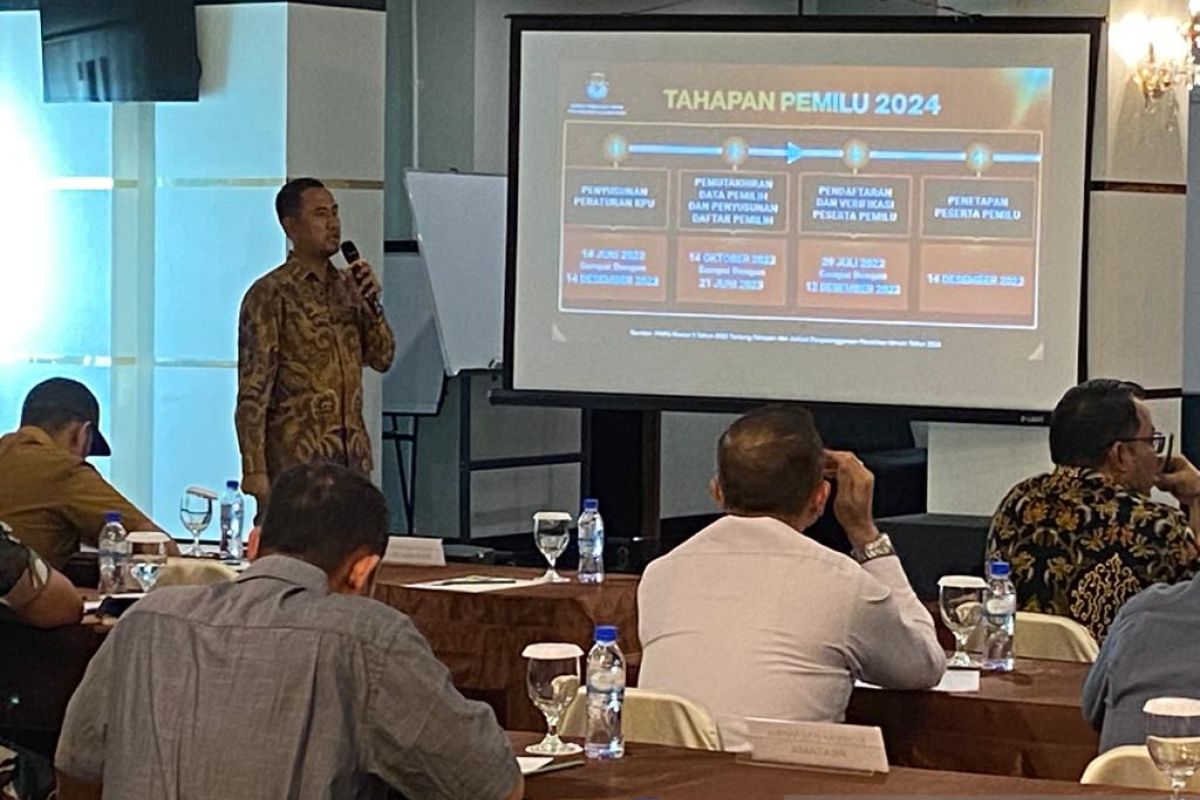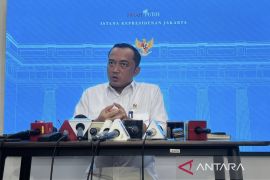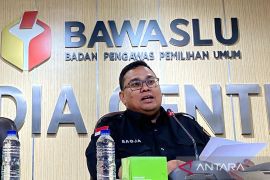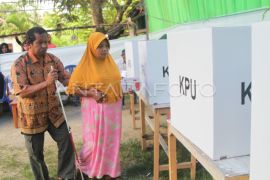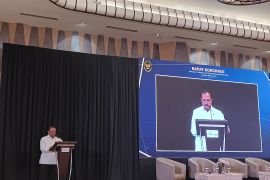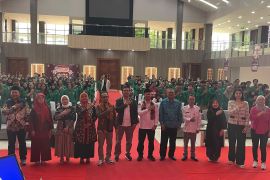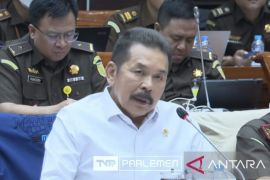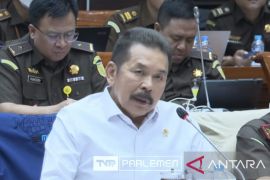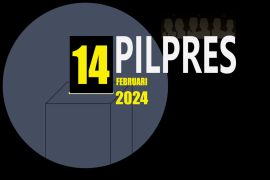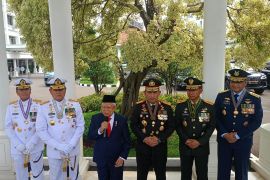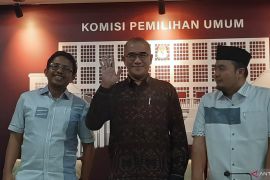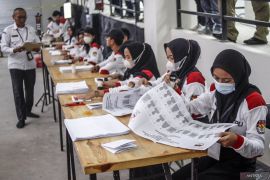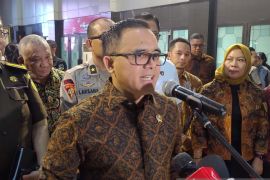In the era of digitalization, the use of technology during the general election period is a must. This is because election digitalization is deemed to be able to facilitate people in exercising their voting rights.
Utilizing digital equipment in the general election can also create efficiency, both in terms of the budget and human resources.
For instance, e-voting also does not require physical equipment at the voting location. Moreover, e-voting reduces the number of required workers, including security staff and election supervisors on the field.
Based on this aspect, it can be estimated that some 60 percent of the state budget allocated for ad-hoc members during the election can be utilized for other activities.
The election organizer can also expend less energy through digitalization as compared to holding the election through the conventional system.
The application of technology in the general election can also ensure transparency in the process and prevent election violation as a result of neglect or monitoring limitation.
Technology will provide convenience in organizing the election and bolster general election monitoring despite the limited number of staff.
Convenience in voting also meets the public's demand during the COVID-19 pandemic as health protocols continue to be implemented to prevent transmission of the virus.
E-voting annuls direct interaction between voters and organizers. Voters also simply need to determine their choice through a special system or application that has been prepared digitally.
Moreover, International Idea's research result in 2019 for 106 countries concluded that general election digitalization is the right move to produce leaders from democratic, transparent, honest, and fair election.
Realizing general election as the indispensable root of democracy, various countries have begun working towards implementing election digitalization.
India, with a population reaching 1.3 billion people, uses e-voting in the national- and local-scale election. The Philippines, Brazil, Estonia, Kazakhstan, Norway, Nepal, Russia, Pakistan, the United States, and Belgium also apply technology during the voting and vote counting stages.
Not all countries succeed in utilizing the general election technology. In fact, two developed countries, such as the Netherlands and Germany, organize elections in a conventional manner once again after failing to use digitalization.
One of the issues encountered in the use of technology to organize the election is the level of efficacy of system security that impacts the voters' trust.
This is despite the fact that voters' trust is the most important aspect in the general election. The crisis of trust in election is a seed of conflict that can snowball into a larger issue.
The election organizer and the government must be able to build the public's trust in the general election by producing an easy, transparent, and quality system.
The system also becomes the most important part in developing the trust of election participants that have made extensive efforts in competing in the election.
The successes and failures in utilizing technology to organize the general election should be taken into account by the government in the form of evaluation to gauge the shortcomings in conducting election digitalization.
Election digitalization in Indonesia
One year in the reformation era, Indonesia has actually utilized election technology before, albeit not on a comprehensive scale.
More accurately, the history of election technology dates back to the year 1999 after the government realized that general election digitalization can facilitate the General Elections Commission (KPU) in organizing general elections.
Digitalization of general elections was also deemed to be able to produce leaders from quality, transparent, and professional election process.
During the course of history of elections in Indonesia, digitalization of the general election is not undertaken in all stages but rather in the participants' political party registration, management of general election's logistics, election recapitulation, voter registration, candidate registration, campaign, and campaign fund report.
In this case, recapitulation of votes does not serve as an evidence but only acts as a helping tool.
This is despite the fact that the vote recapitulation technology, later known as e-recap within the Calculation System (Situng), is developed to facilitate the vote recapitulation process from the conventional counting result.
Mistakes in inputting voters' data cause an error in vote recapitulation or vice versa. However, the KPU realizes that Situng provides convenience to its officials in the vote recapitulation process.
Reflecting on the experience of digitalizing the 2019 General Election, e-voting becomes one of the important stages that balanced out e-recap.
Political year
2024 will be the busiest political year, given that voting for the general election will be held simultaneously across 514 districts and cities on February 14, 2024.
Moreover, for the first time, within just months after the general election, the country will organize the regional head election (pilkada) in 34 provinces, specifically on November 27, 2024.
No party wants the tragedy that struck election organizers at the sub-district and village level during the 2019 General Election to recur.
According to KPU's record, during that period, 894 workers died and 5,185 workers suffered from illness while working. Part of the issue is the workload that the organizer had to handle that led to exhaustion.
Beyond the death toll that it imposed, exhaustion can also affect the election workers' performance.
For instance, they can miscount votes that cause an error in the recapitulation process, which can lead to other problems as a result of public distrust.
The middle road to alleviate the workload of the organizer at the sub-district and village level is developing a system that utilizes technology.
Exhaustion among workers as a result of holding the election in a conventional manner should be an issue discussed at the moment to start the new age of advanced election process supported by technology.
Related news: KPU to upgrade cybersecurity system to prevent election data leak
Related news: No extension of party registration for 2024 election: KPU
Editor: Rahmad Nasution
Copyright © ANTARA 2022
